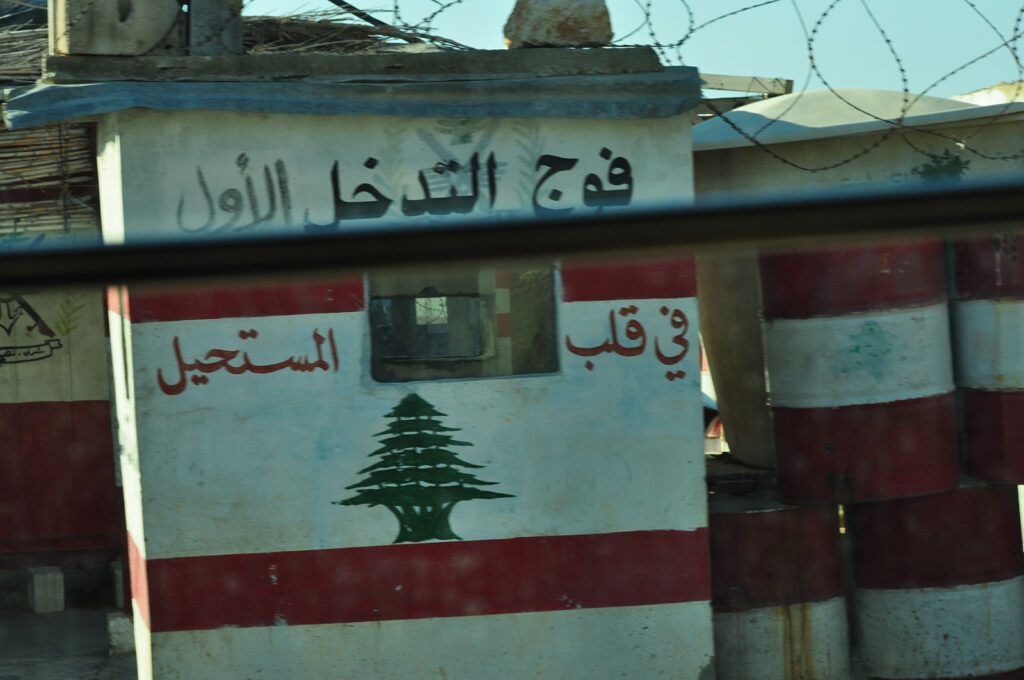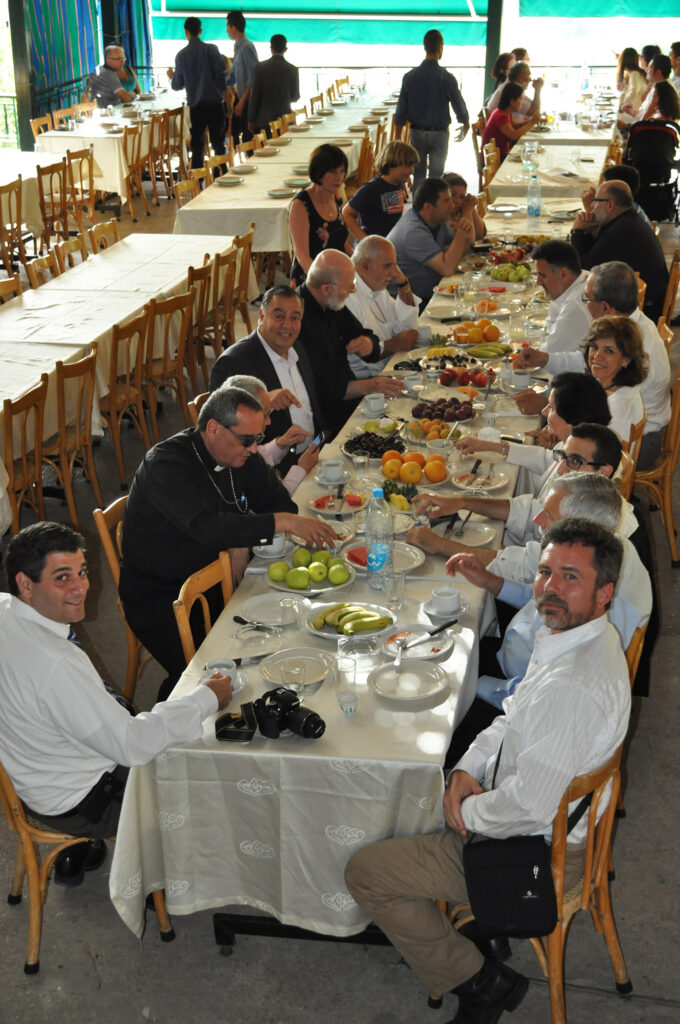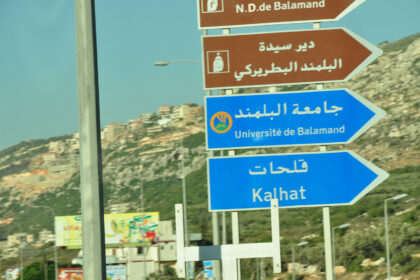
In the summer of 2014, I traveled to Lebanon as part of a delegation to an international gathering of the leadership of the Antiochian Orthodox Church, the largest global body of Arab Christians and their fellow believers, who for many years contracted with me to oversee their English language Internet work.
This opportunity allowed me exposure to a vast range of challenges and learning experiences, from performing at my peak after 30 hours of travel, to overcoming cultural and language barriers, to discovering how to fruitfully contribute to a diverse team working in an even more diverse setting as we spent time in Beirut, Byblos, Balamand, and the mountains near the Syrian border. Lebanon is a small multi-ethnic and multi-faith nation on the edge of a war zone, straining under refugees fleeing Syria, while simultaneously a vibrant modern society.
I have sketched out a series of essays unpacking specific aspects of the journey. Here is the article I wrote for The Word, the magazine of the Church’s North American Archdiocese. The Archdiocese includes hundreds of parishes across the United States and Canada, many with long histories rooted in early 20th century immigration to American cities by Syrians, Lebanese, and other Arab Christians.
Into The Heart Of Antioch: The North American Delegation to the Antiochian Unity Conference
In late June of 2014, an historic event took place in the life of the Church of Antioch: the first Antiochian Unity Conference, called by His Beatitude John X, Patriarch of Antioch and All the East, to gather together representatives of the Patriarchate from across the globe. The conference was held in Balamand, Lebanon, from June 25 to 29, and concluded on the Feast of Saints Peter and Paul with a massive outdoor Patriarchal Liturgy on the grounds of Balamand University, attended by faithful from across the region as well as those gathered for the Conference.
This gathering occurred during a momentous time for our ancient Patriarchate of Antioch. A strong and ascendant Patriarch, John X, in the early stages of his leadership, guides the Church with love and joy in the Holy Spirit, while the Church carries a heavy cross: the historic homeland of the Patriarchate in Syria suffers war and the constant threat of violence, and the Church in Lebanon struggles with the burdens of life on the doorstep of war. The discussions of the conference were informed by the presence in spirit of the brother of Patriarch John, His Eminence Metropolitan Paul of Aleppo, abducted during the conflict over a year ago, along with Syriac Metropolitan Yohanna of Aleppo.
Yet in the midst of this time of suffering, there was joyful fellowship in Balamand, as His Beatitude indicated in these words from the official English translation of his homily on the Feast of Saints Peter and Paul, the patronal Feast of the Patriarchate:
Today the heart of our Church is beating with love and joy. Today the apostles Peter and Paul are rejoicing to see the light they shed in Antioch glowing in this blessed assembly. The heart of Antioch that beats with Christian zeal, love and leadership is rejoicing to see the gathering of all brothers. Today the walls of Damascus embrace the bells of Beirut, and Saint Peter’s grotto in Antakya touches the dome of Balamand. Today Zahle greets Lattakia and Akkar sweeps the wounds of Aleppo. Today Homs embraces Mount Lebanon and Hama washes the nets of Tyre and Sidon. Today the bells of Suweidaa play the hymn of love to the churches of Tripoli and Koura. Today our sons in Iraq and the Gulf lean on the chest of their Antiochian Church in this blessed gathering of the brothers. Today the Church of Antioch in the homeland embraces apostolically the Antiochian Church of overseas. Today our sons in North America, Canada, Mexico, Brazil, Argentina, Chile, Australia, France, Germany, England, Scandinavia, Switzerland, Austria, all Europe and the four corners of the world embrace the mother Church that baptized them and their ancestors and anointed their lives with the name of Christ. They in turn anoint her by their love and giving, by their longing and sacrifice in standing up for its concerns. Today we all bow down to the Lord Jesus our Creator and Savior in the time of crises, who allowed us to meet here today in Balamand, in this Antiochian University, in Koura, the bride of Lebanon.
Our North American Archdiocese was well represented at the conference, including an official delegation of nine members, as well as other attending hierarchs and invited clergy and laity. Over twenty people in total were present from the Archdiocese. The official delegation included Archpriests Thomas Zain and Timothy Ferguson, representing the clergy; Fawaz El-Khoury and Daniel Braun, for the Board of Trustees; Daniel Abraham, for the Order of St. Ignatius; Violet Robbat, for the Antiochian Women; Khalil Samara, for the Fellowship of St. John; Jordan Kurzum, for SOYO; and Douglas Cramer, for the Department of Internet Ministry. Very Rev. Fr. Michel Najim also attended, having been asked by His Beatitude to deliver one of the conference’s major papers. Others from the Archdiocese at the Conference included His Eminence Archbishop Joseph, on the eve of his election as Metropolitan of All North America; Their Graces Bishops Alexander, John, and Nicholas; Michael Homsey (for IOCC); Very Rev. Fr. Antony Gabriel and Khalil Kardous (for the Antiochian Heritage Foundation); Eric Namee (for the Virginia H. Farah Foundation); and Anne Glynn Mackoul (representative of the Patriarchate of Antioch to the World Council of Churches). His Eminence Metropolitan Silouan was also present, continuing his oversight of the Archdiocese in his concluding days as Patriarchal Vicar by providing guidance to the delegation.
The official delegation stayed during the conference in historic Byblos, Lebanon, on the Mediterranean coast, and commuted each day to the Balamand, enabling them to plan and speak together in order to provide a single witness and representation on behalf of the Archdiocese. Over the course of the conference, His Beatitude Patriarch John X took time to meet separately with the hierarchs, the clergy, and the laity who were in attendance from North America, in order to deepen the mutual love and communion between our Archdiocese and the Patriarchate of Antioch, during the final period of our transition following the passing of His Eminence Metropolitan Philip of thrice-blessed memory.
Patriarch John X’s homily to the gathered faithful included these words of encouragement, of particular significance for the faithful in North America:
Our Antiochian Orthodox Church is a vineyard in the true sense of the word. The vineyard spreads its branches outwards and they grow in a new land and flourish in new parishes and dioceses overseas, in the two Americas, Australia and Europe. These dioceses might have a special situation because they are planted in a far-away land, but they stem from the Antiochian root that provided them with priests, pastors and experience. So the generous sons of our Church became ambassadors of the spirit of the Antiochian Church and a strong supporting arm to the mother Church and motherland. Our Antiochian unity, the theme of this conference, is expressed through the presence of the believers from these dioceses with us today. Among them are also brothers and sisters who converted to the Orthodox Church through our Antiochian jurisdiction and of whom we are proud, and for them we pray constantly.
While there was prayer and fellowship, planned and unplanned, in abundance, the formal work of the conference was centered on an ambitious agenda. Five major areas of study were identified. A pair of major papers on each area was presented to the gathered assembly, and there were dedicated breakout sessions as well, devoted to developing ideas and recommendations in detail. The areas of focus included Pastoral Interaction; Financial and Wakf Property Development; Social Work; Effective Presence in Society; and Communication. By the conclusion of the conference, over 80 specific recommendations across these areas had been compiled for further consideration by the Holy Synod of Antioch.
Throughout the proceedings, there was a constant exploration and prayerful deliberation over the nature of our shared identity, needs, and hopes. The underlying meaning of a united Antiochian Christian identity was well-stated in the words of Very Rev. Fr. Michel Najim of Los Angeles, California, in his feature paper on Pastoral Interaction:
The apostolic spirit of Antioch blazes brightly and ignites the churches of its farflung archdioceses throughout the world. Lest the members of our holy Patriarchate suffer a loss of this apostolic light through isolation or ignorance, we deem it essential that all the provinces of Antioch share in the same apostolic, martyric, and evangelic witness of their Mother Church. Let this apostolic torch illumine the interiors of all our churches, so that no obliviousness persist, and that no one remain bereft of the spirit of the holy chief apostles, our heavenly patrons, Ss. Peter and Paul. Indeed, this apostolic spirit animates and promotes the now two-thousand-year-old unifying ethos of Antioch. This spirit, which is nothing other than the “spirit of Jesus,” integrates our ancient, yet ever-new, Patriarchate.
By Douglas Cramer, September 2014










